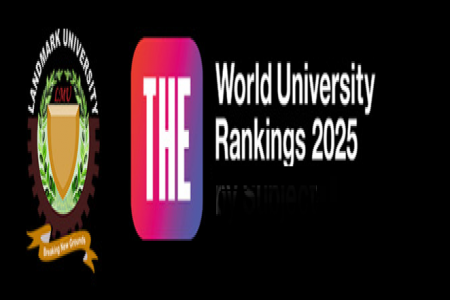
Story of the week
The Landmark University’s interaction with experts in research proposal writing and grantsmanship has further repositioned the University in her quests for unbroken contributions to global knowledge thereby accomplishing top-level world rankings as well as competing favourably in the global knowledge economy towards the realization of her vision of becoming a leading world-class University.
In a webinar titled “Research Proposal Writing and Grantsmanship in the New Normal with Special Focus on Developing Countries” organized by Landmark University’s Department of Sociology, the experts, Professors Mabayoje Aluko of the Obafemi Awolowo University and Layi Erinosho of the University of Ibadan, explored the frontiers of the discourse with a view to bridging the gaps in grant-winning research proposals especially in the developing countries. Speaking on research proposal writing, Professor Aluko noted that poorly written proposal can never be fairly attended to because the majority of the grants programmes would not compromise their projections. He said that grant-winning research must be well planned and feasible, outlining the aim, goals, outcomes, significance, and validity for success. He noted that they are what give credence to the investigator’s qualification to undertake the project. Professor Aluko highlighted the order of the elements of a grant-winning proposal that are fairly standard while also espousing on budgeting, time frame and revision of the proposal, noting that strong grant proposals take a long time to develop.
In furtherance of the discourse, Professor Erinosho presented on grantsmanship focusing on the key criteria used to assess research proposals. Revealing the most neglected criteria, Professor Erinosho asserted that not just good projects but the ones designed in line with the agenda of the funding agencies can secure grants. Giving the competitiveness of the grants, he noted that research proposal must, as a matter of fact, demonstrate a clear ability to solve a problem and provide the rationale for the project to be considered for a grant. He hinted on the scoring pattern of the reviewers accruing a whopping 75 points to only four out of the nine scoring criteria which include statement of the problem, methodology, conceptual framework, and analysis of data. According to his chart, budget was only 5 points but can determine the fate of a project when projected beyond the grantors’ financial plan which automatically disqualifies such entry from being considered. However, Professor Aluko allayed the fears of researchers on budgeting, saying that when project budget exceeds the grants size of the funding organisation, researchers can simply state that additional funding will be sourced from another organisation. He said this technique makes it easy for researchers to combine awards.
Professor Erinosho, therefore, advised researchers to look both inwards and outwards when searching for grants. He revealed that grants are not only domiciled with non-governmental organisations but also federal ministries for prospective funding.
In his opening remarks, the Vice-Chancellor, Landmark University, Professor Adeniyi Olayanju had appreciated the facilitators for their continuous commitment to mentorship in which Landmark University is a beneficiary. Professor Olayanju further commended the aptness of the webinar which he believed would signpost the University for global relevance and impact. While reinforcing the need to build the capacity of faculty and staff for grant-winning endeavours, Professor Olayanju said the University has been intentional and forward-looking in her research and publication drive and now wants to attract funds to the University for the purpose of carrying out more researches, which would also enhance teaching activities as well as community services thereby expanding the University’s visibility and ranking.
In her remarks, the Registrar of the institution, Miss Fola Oyinloye also submitted that continuous capacity development is non-negotiable for any organisation that has sustainable growth on its mind because it provides the requisite platform for the workforce as well as the organisation to acquire, develop and retain the skills and knowledge required for efficiency, effectiveness and productivity.
The Head of the Department of Sociology, Dr Bamidele Rasak, thanked the University Management for the support to successfully host the webinar, noting that it was a highly intensive session that would awaken the University community to productive engagements across board.
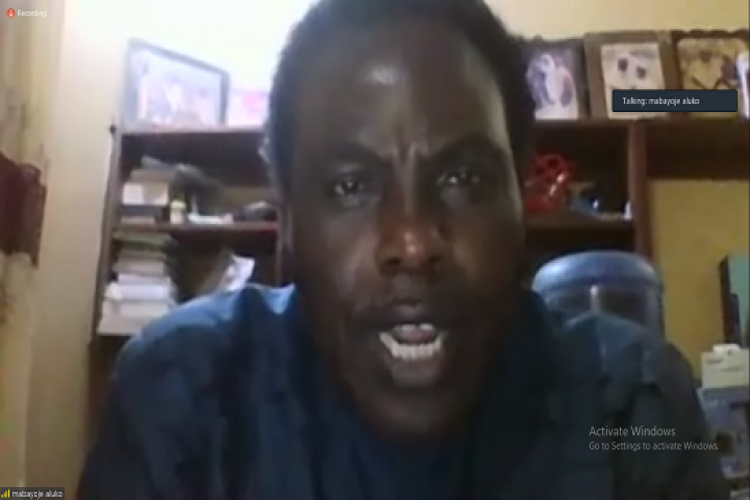
Professors Mabayoje Aluko of the Obafemi Awolowo University while speaking on Research Proposal Writing
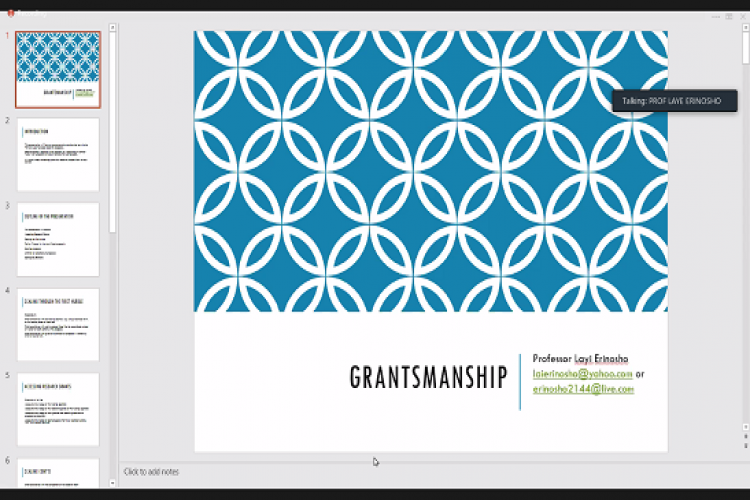
Professor Layi Erinosho of the University of Ibadan while speaking on Grantsmanship
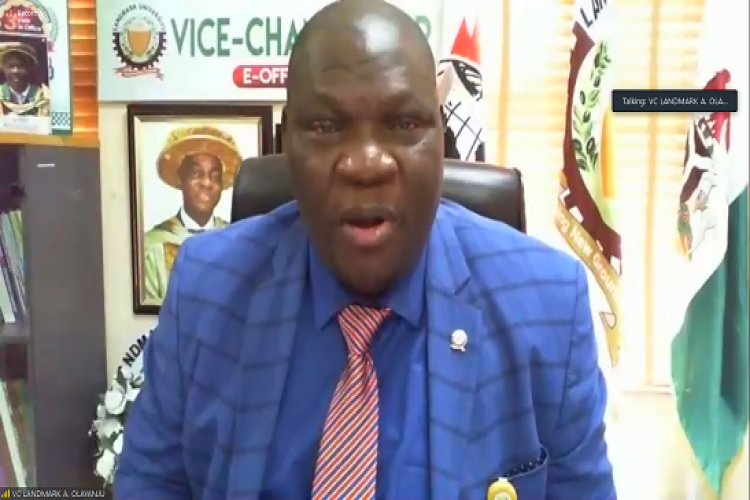
The Vice-Chancellor, Professor Adeniyi Olayanju while giving his opening remarks
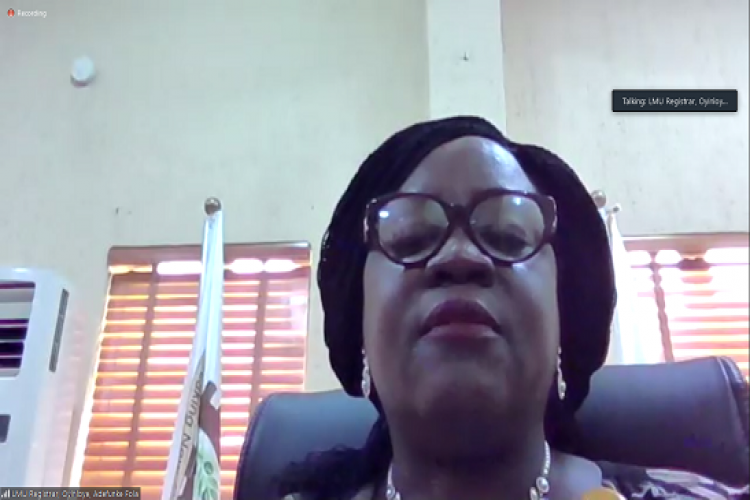
The Registrar, Miss Fola Oyinloye giving her welcome remarks
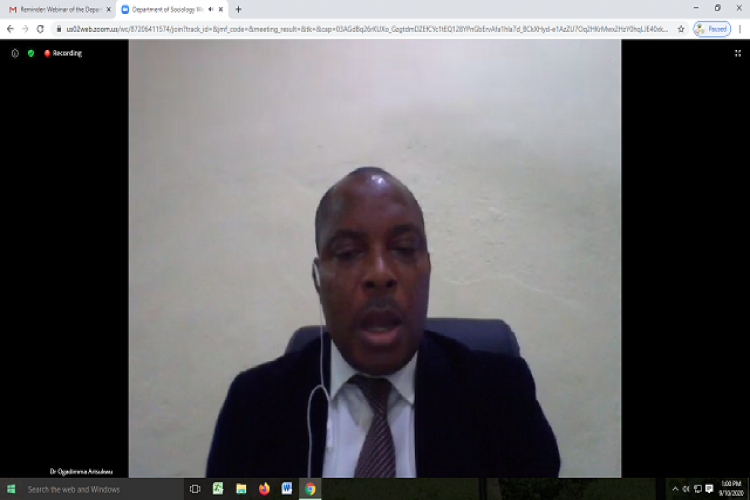
Dr Ogadimma Arisukwu at the webinar giving the votes of thanks at the webinar
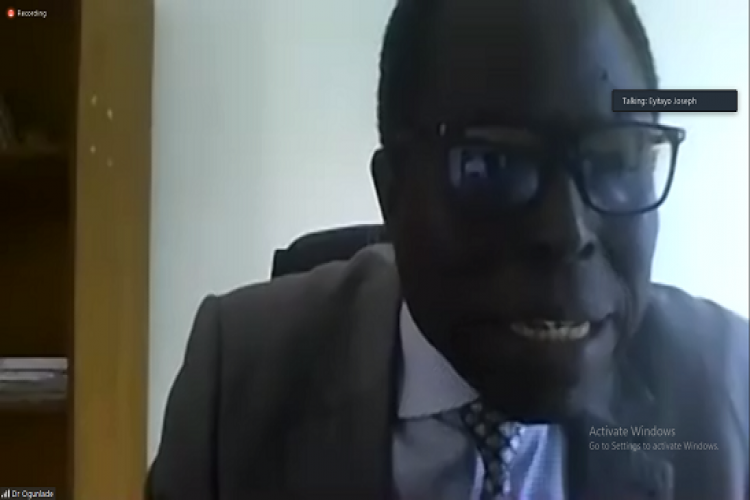
Dr Ogunlade leading the closing prayer for the webinar
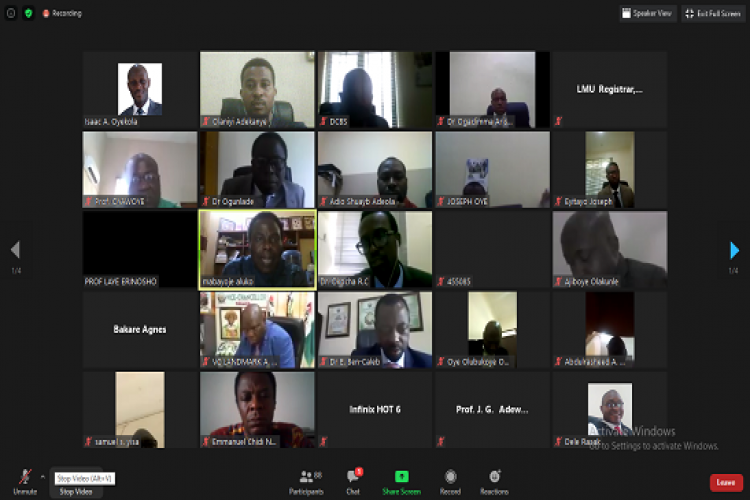
A cross-section of participants at the webinar
Get the latest news and updates by signing up to our daily newsletter.

Story of the week